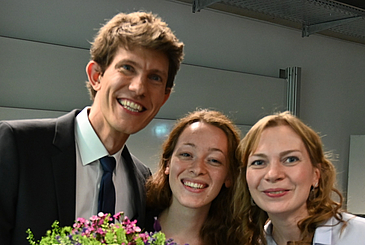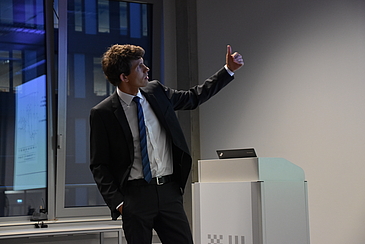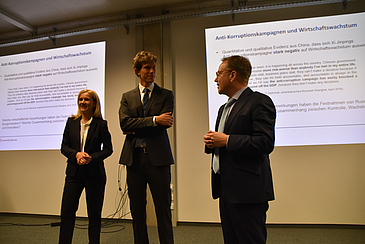On December 5, Michael Rochlitz, Professor of Institutional Economics, gave his inaugural lecture (‘Antrittsvorlesung’) at the Faculty of Business Studies and Economics of the University of Bremen. The inaugural lecture is a long-established tradition in German universities and a festive occasion when newly appointed professors present their research to an audience of colleagues and friends. The event began with a greeting from Prof. Dr. Jochen Zimmermann, the dean of the Faculty, and was attended by members of the rectorate, the Bremen Ministry of Science, the Faculty of Business Studies and Economics, the Faculty of Social Sciences, the Bremen International Graduate School of Social Sciences (BIGSSS), the Research Centre for East European Studies and many other guests.
Michael Rochlitz’s presentation, ‘The Effect of Political Institutions on Economic Development: Empirical Evidence from Russia and China’, was a compilation of several of his papers to offer a broad overview of his research interests. He first made a short introduction to the topic of institutional economics and then proceeded to discuss implications of political propaganda and media censorship in Russia, as well as bureaucratic incentives and effects of anti-corruption campaigns on economic performance in Russia and China. The presentation concluded with a round of Q&As.
Michael Rochlitz was appointed Professor of Institutional Economics at the University of Bremen on April 1, 2019. The professorship was newly established by the Faculty of Business Studies and Economics in close connection with the research association Mod-Block-DDR (Modernization Blockades in Economics and Science of the GDR). The research network, which is initially financed by the BMBF with several million euros for four years (2018 to 2022), is headed by Jutta Günther at the Faculty of Business Studies and Economics at the University of Bremen.



